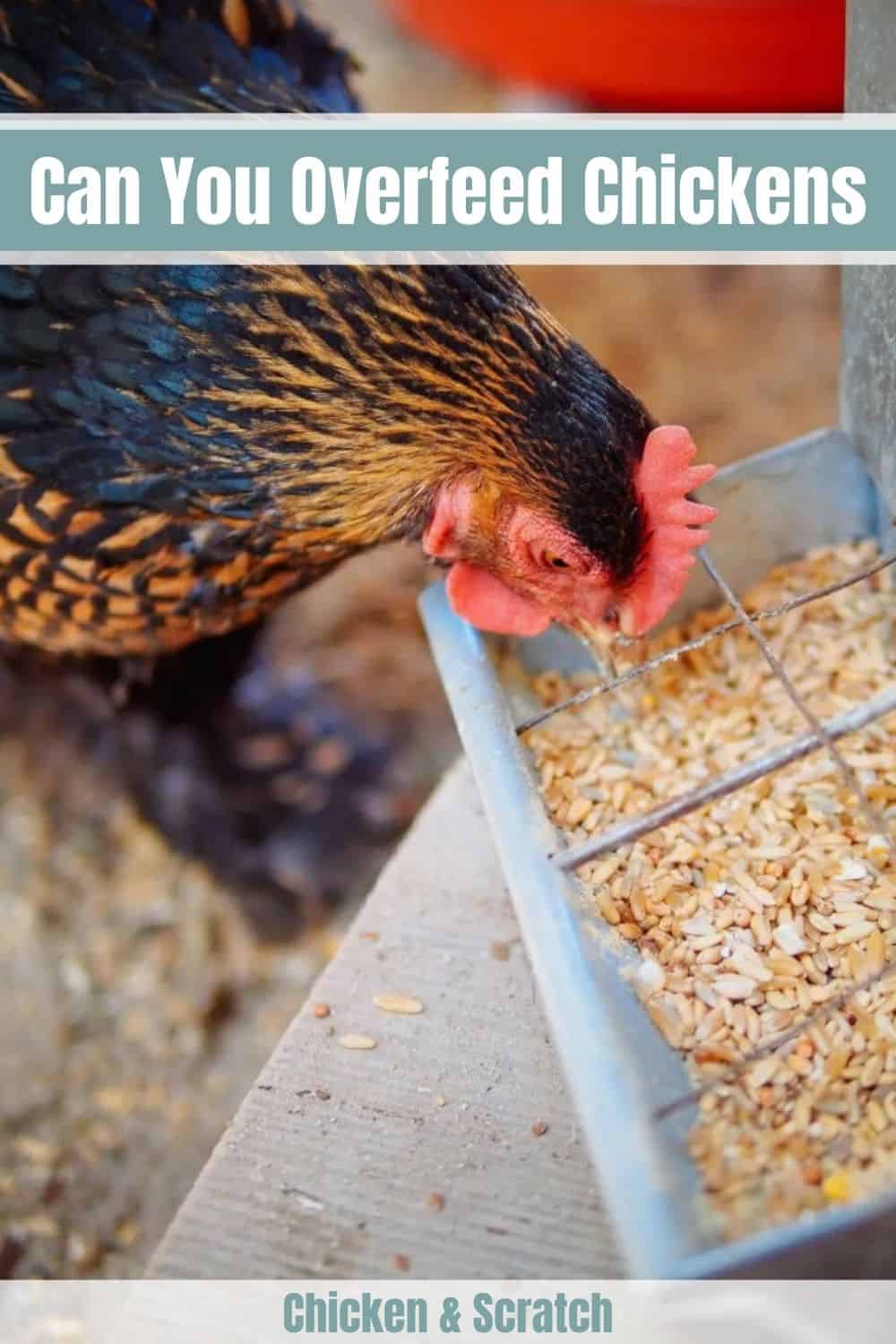Chickens are pretty fun to have in the backyard and fairly easy to maintain. However, it’s important to know about the optimal eating habits they should have, so they can lead a healthy life and provide you with healthy eggs as well. Let’s learn more about the aspects of their diet.
Can Chickens Be Overfed?
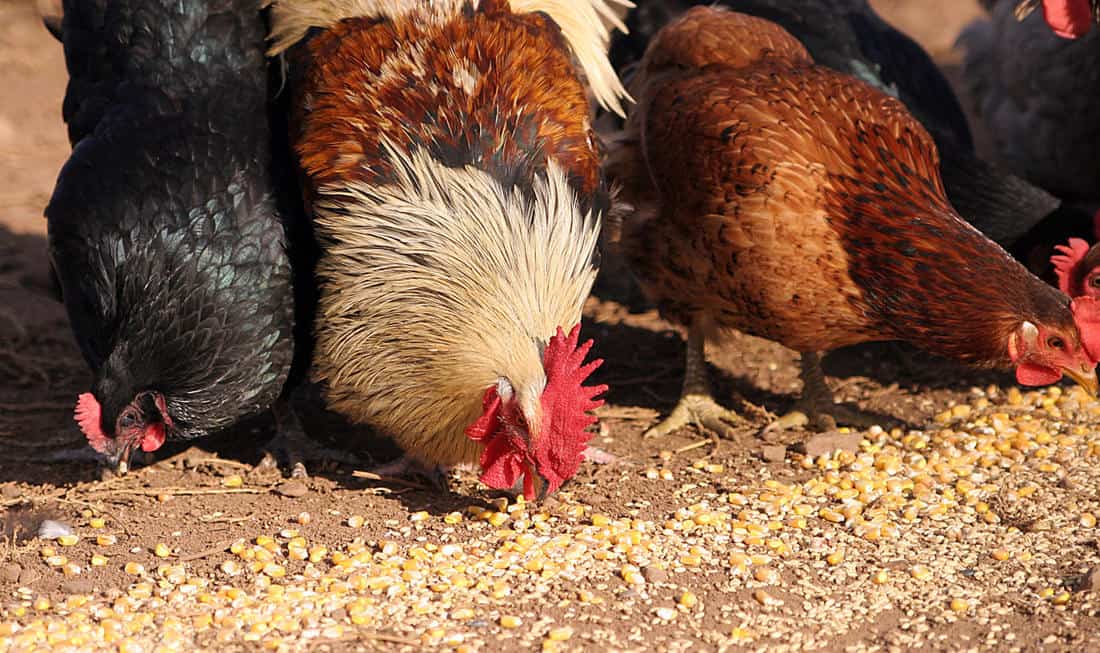
The chickens instinctively know to stop eating when full. They have good regulation of how much they can eat without overeating. Another important thing to know is that they are omnivores and will eat pretty much anything you put in front of them.
Sometimes, when stressed, they even start eating each other! Since they are not picky eaters, it’s very important that you pick the optimal food for them. While it is true that they cannot overfeed on the food that is healthy, if you give them too many treats, they can easily lose their instinct and indulge in more food than they need.
To avoid this, you can follow the necessary steps to prevent it, provide them with good, high-quality, organic food, and play with them whenever you have time. You can give them treats from time to time, but you should be careful with the quantity and quality of treats they get.
4 Signs Your Chickens Are Overfeeding
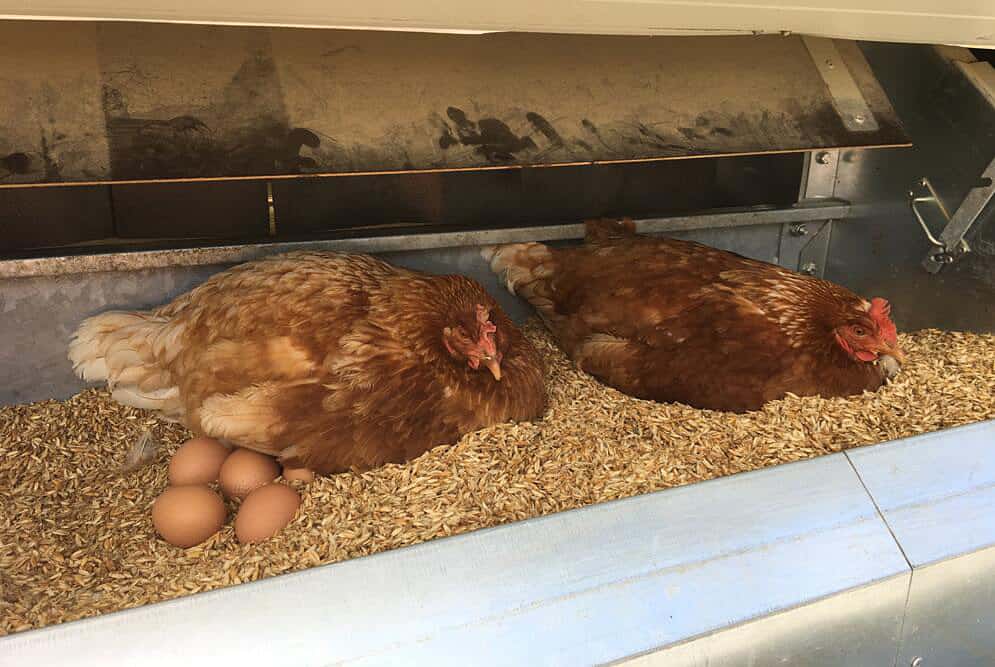
Change In Egg Quality and Production
Look out for any changes in the quality of the eggs your chickens produce. If the shell is too thin or if there are any unusual changes to the color of the eggs, it may be a sign that they are being overfed. One more thing to be aware of is any changes in the quantity of the eggs they produce.
Most healthy chickens lay one egg per day. When your chicken hasn’t laid an egg for more than three days, it can also be a consequence of their overfeeding. If you are not giving them too many treats and they are free-range chickens, follow them closely to see if they are finding some extra treats by themselves. You should try to limit that amount so they can start recovering.
Change In The Size of Eggs
Overfed chickens usually produce bigger eggs. As tempting as it sounds, it is not good to overfeed chickens in order for them to lay bigger eggs. They need calcium to make eggs. The more calcium they use, the bigger the eggs will be.
However, the deficiency of calcium can cause egg binding – the inability to lay an egg. The condition can be fatal, and it is definitely not worth it. If you notice that your chickens are producing produce unusually bigger eggs, look in their diet for a potential cause.
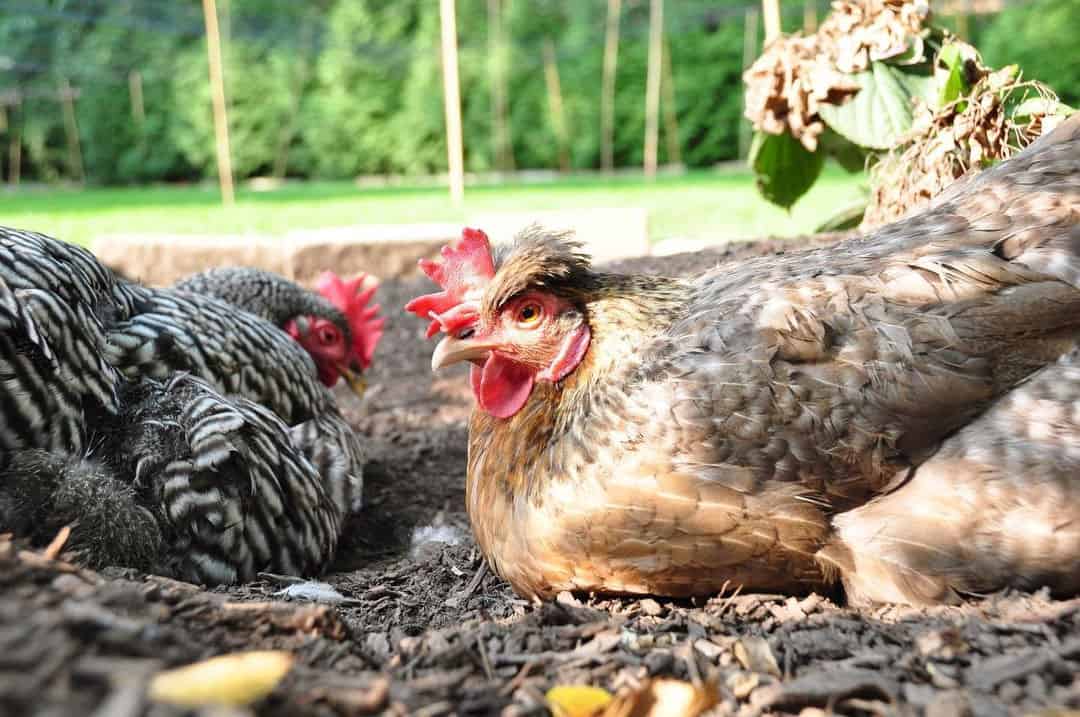
Change In Movement and Mobility
Overfed chickens can gain weight and which may cause them to become less mobile and to move less. If you see any changes in their regular moving behavior, it may be a sign that they are eating too much. Pay close attention to their regular everyday habits, so you can notice any changes as soon as they happen.
Change In Their Attitude
If your chickens are overeating, it may manifest as a change in their attitude and overall behavior. They may become more irritated and lethargic, especially if they ate something dangerous for them, like dry beans.
You know your flock better than anyone, so it will not be difficult to notice these changes if they happen. Regulating their diet will lead to improving their well-being, and they will get back to their old selves rather quickly.
How To Fix Overfeeding?
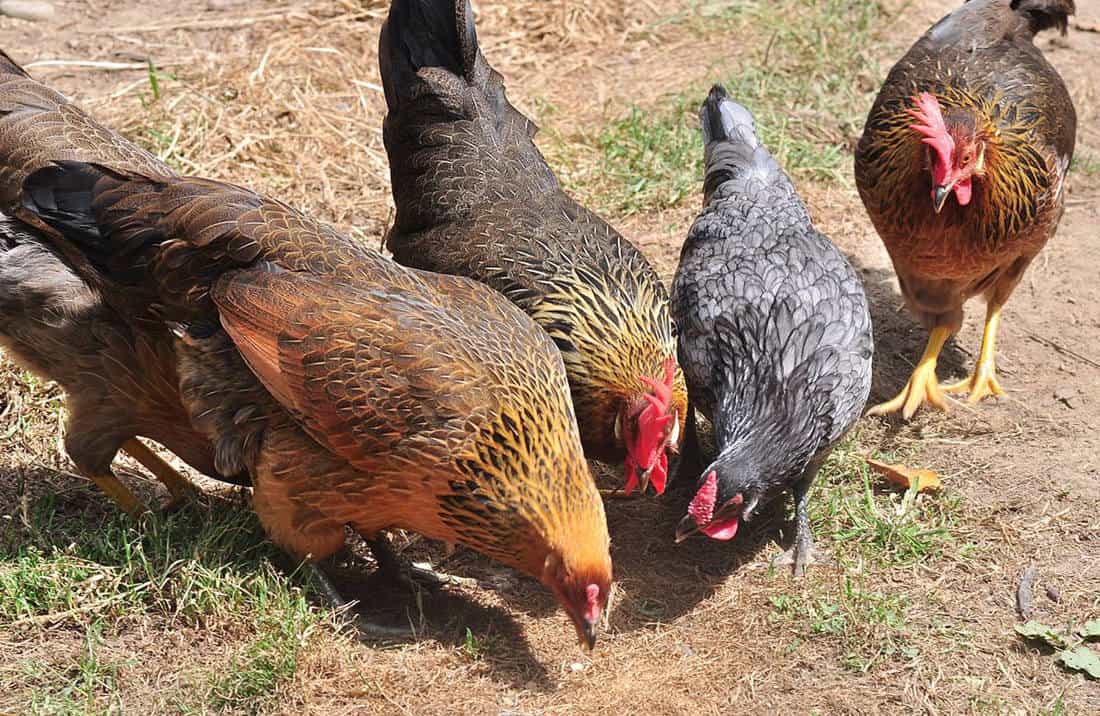
Exercise
Exercise is a great way to help overfed chickens. It’s important to make them move and increase their mobility. You can make them run around by throwing some breadcrumbs (but not too many) to the whole flock. Not only will it be beneficial for your chickens, but playing with them can also be very fun for you!
Diet
Feeding your chickens a healthy diet is crucial both for the prevention of overfeeding and for fixing it. Choosing the right food and healthy treats can help your chickens feel great, behave great, and lay healthy eggs regularly. Their diet differs as they age, and so does the amount of food they should eat.
What To Feed Your Chickens?
Feeding your chickens an unhealthy diet can affect the quality of the eggs they lay, it. It can lead to numerous health problems in chickens, and sometimes even death. If you plan to have chickens running around in your backyard, it’s essential to know everything about the optimal diet they should have.
Like us, they need a sufficient amount of minerals and vitamins to be healthy and function properly. Luckily, they are not difficult to satisfy, and there are many ways you can help them meet the necessary dietary requirements without overfeeding them.
Layer Feed
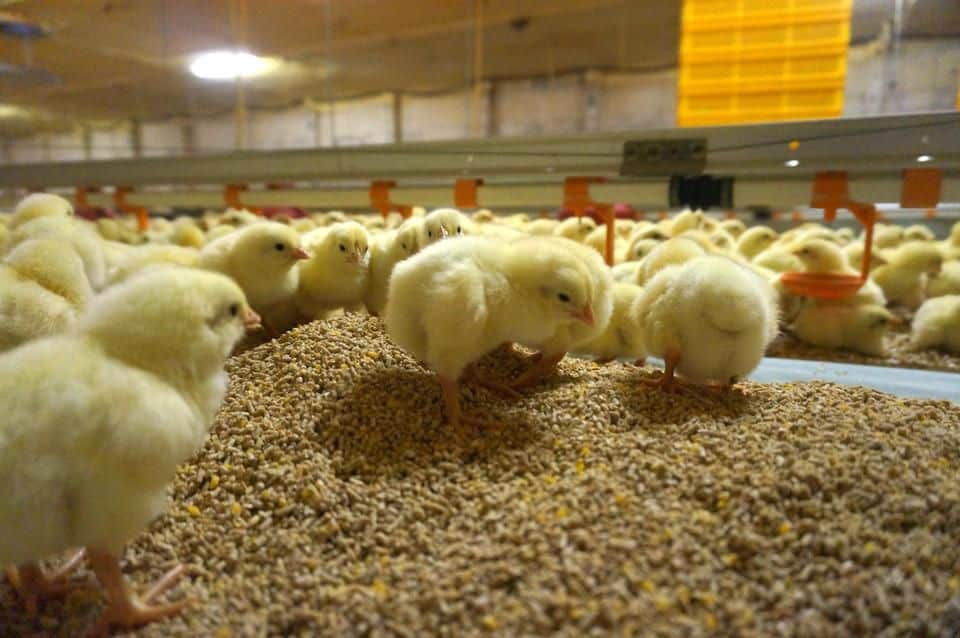
Layer feed is usually made of grain, seeds, and supplements. Grain is rich in protein that chickens need to consume in order to be healthy and produce high-quality eggs. It also plays a crucial role in the growth and immunity of chickens.
Layer feed contains calcium which is one of the most important minerals for chickens. Make sure to start giving them this food only once they turn twenty weeks, or when they start laying eggs. Use starter feed for baby chickens and grower feed for chickens between six and twenty weeks old.
Fruits and Vegetables
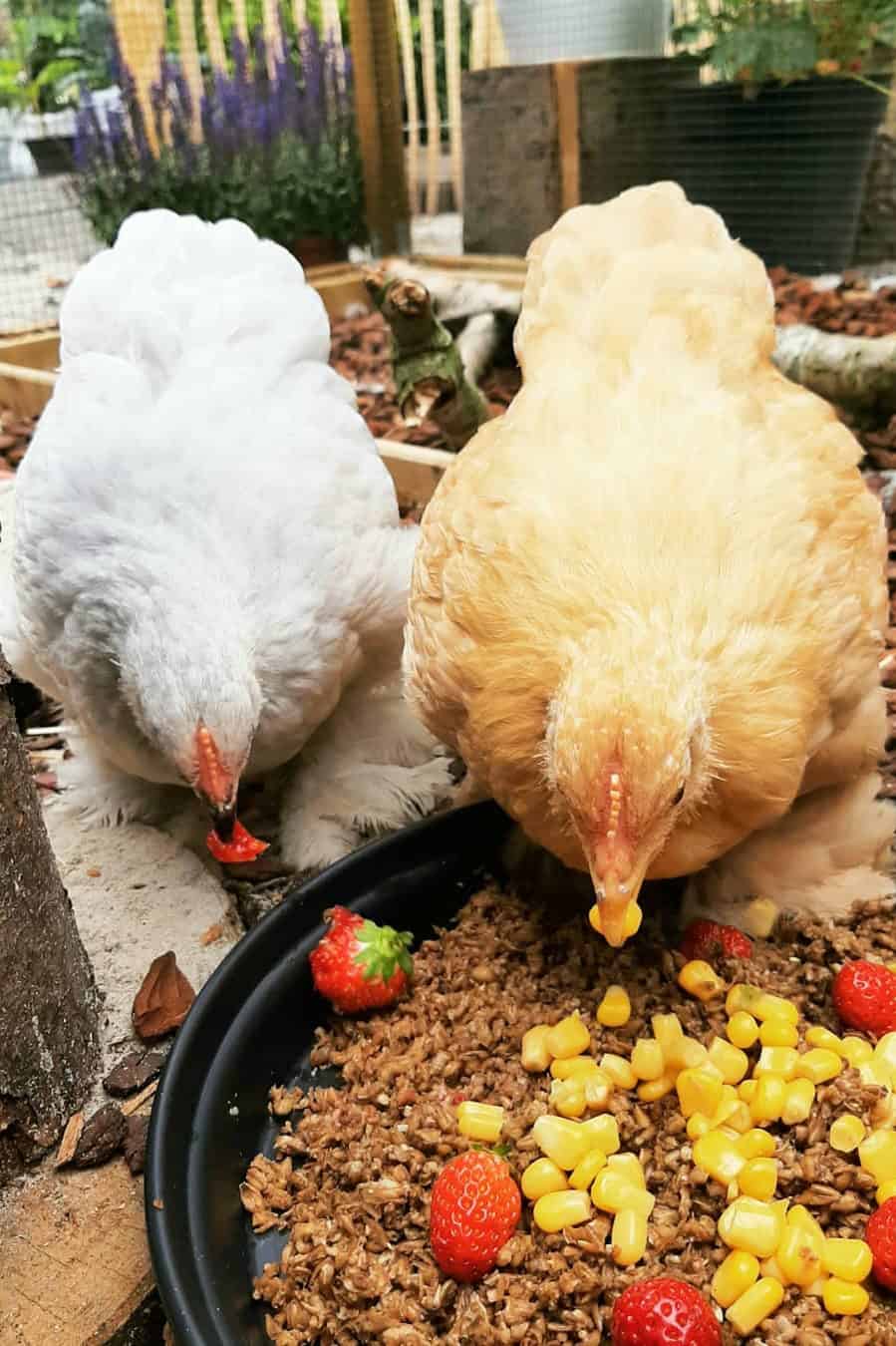
As mentioned, chickens will eat anything, so they don’t shy away from fruits and vegetables. Fruits and vegetables provide them with the nutrients they need, and they will love eating them! You can give them lettuce, apples, broccoli, and spinach.
Avoid citrus fruits and vegetables, such as lemon, lime, and tomatoes. Do not let them eat any sugar, salt, coffee, soft drinks, or greasy food. Beans are poisonous to chickens, so make sure you don’t have any lying around in the place where you keep them.
Treats
If you want to make your flock happy, you can give them treats from time to time. Some treats that they love are watermelon, bananas, seeds, and meal scraps like cooked rice, pasta, or bread. However, treats are one of the main reasons for chicken overfeeding. You should limit their intake of processed carbohydrates and processed foods as they can disrupt their feeling of fullness.
How Often Should Your Chickens Eat?
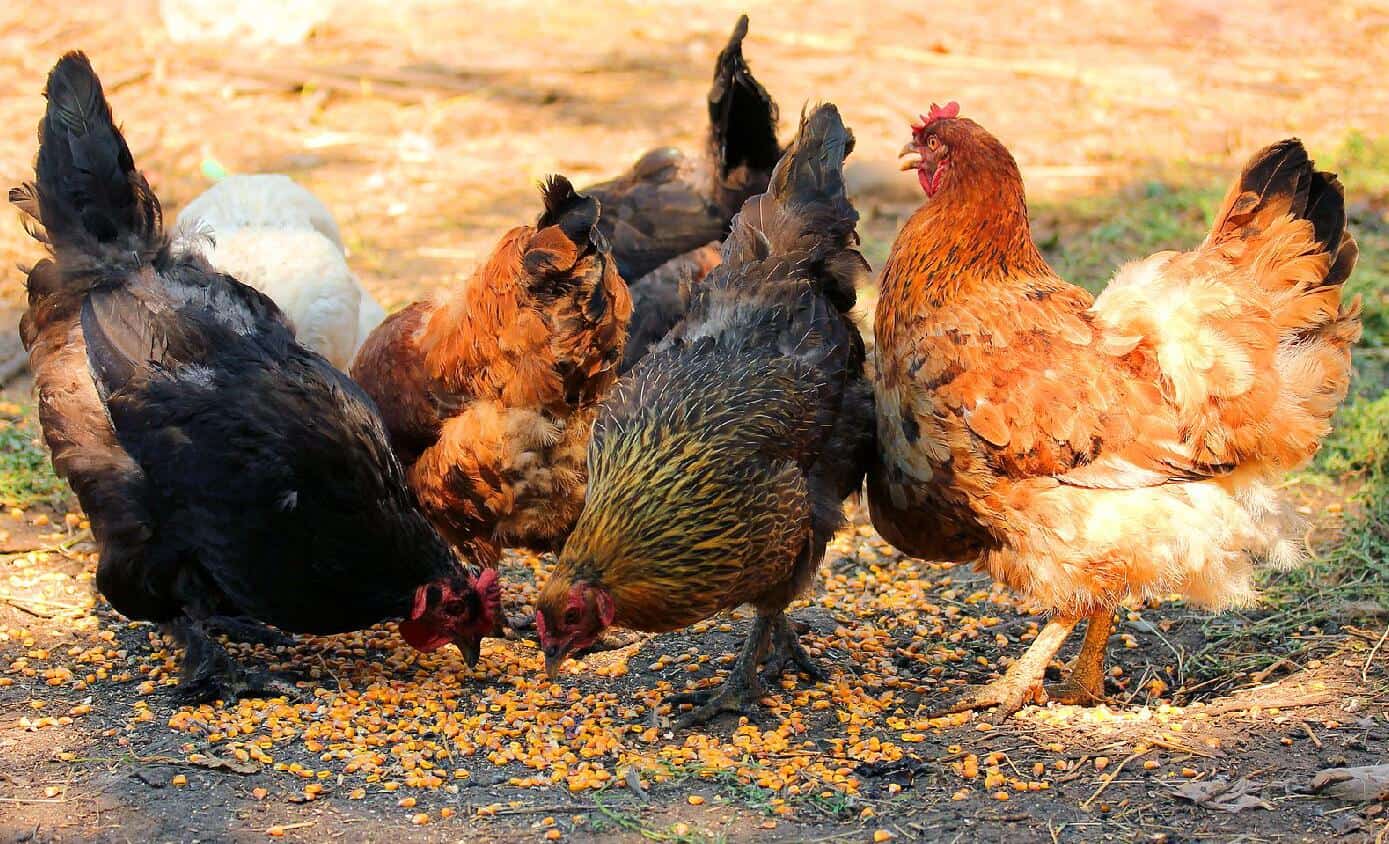
If you are feeding your chickens a healthy diet, they should have access to food for the whole day. If they don’t eat too many snacks and treats, they will stop eating once they are full. This way, they will be full for the whole day, but they won’t overeat. However, you don’t have to check up on them for the entire day.
You can leave them food once every 12 hours – in the morning and in the evening. It is good to consider buying an automatic chicken feeder, especially if you have problems with rodents, or if you are planning a vacation.
It helps food stay fresh for longer, and it is very easy to use. It also comes in different sizes depending on the size of your flock. Also, don’t forget to put out fresh water regularly! Hydration is as important for chickens as it is for humans.
How Much Food Should Your Chickens Eat?
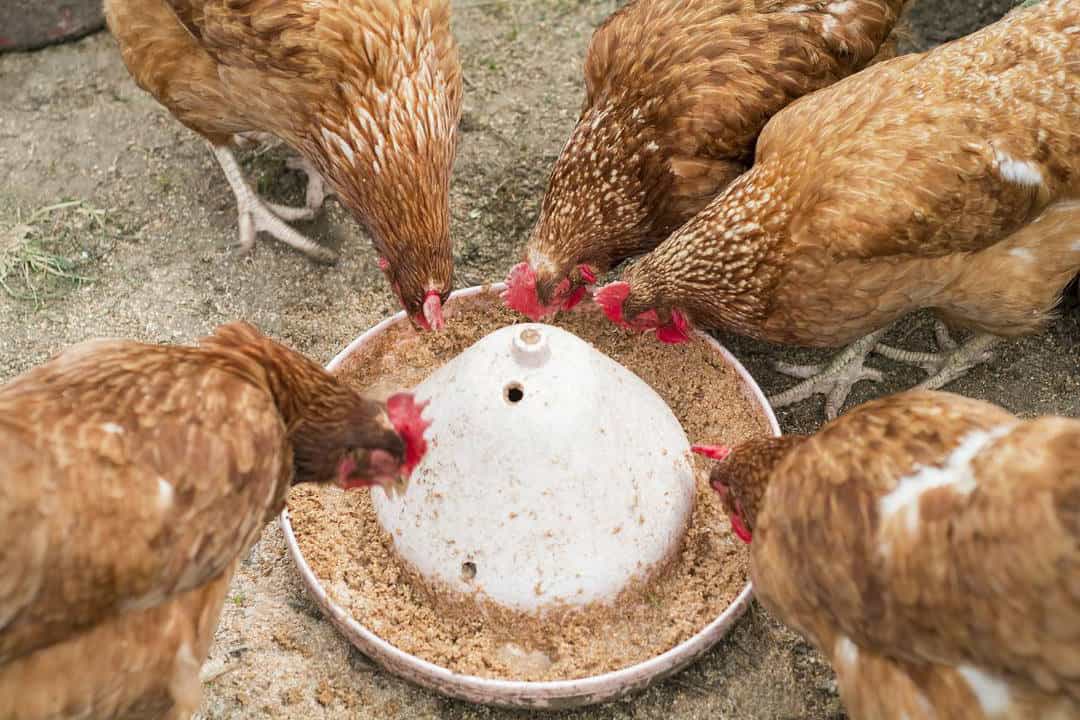
As chickens grow, they need to be fed different amounts of food. Baby chickens that are up to six weeks old need around a pound of food weekly. As they grow older, when they are between six and twenty weeks of their lives, that amount increases to around 8 pounds of food per week for every chicken that you have.
When they are fully grown, you will need to feed them between 1.5 and 2 pounds of food every week. Multiply that amount with the number of chickens you have, and then divide it by seven to see how much food you should be leaving them daily.
For example, if you have five adult chickens, together they will need around 8.75 pounds of food every week. This means that you will be leaving them 1.25 pounds of food daily. If you give them food twice a day, you would be leaving around 0.6 pounds in the morning and the same amount in the evening.
However, make sure to check up on them regularly. Watch them a few times per week while they eat because chickens can get competitive, and if you have a lot of them, some can eat very little, while others too much. As you want to avoid overfeeding and underfeeding, it would be good to notice as soon as possible if something like this happens.
Conclusion
You cannot overfeed chickens if you provide them with a good, healthy diet. One of the main reasons for chicken overfeeding is giving them too many treats. If you avoid this, your chickens can be happy and healthy, as they will know when to stop eating.
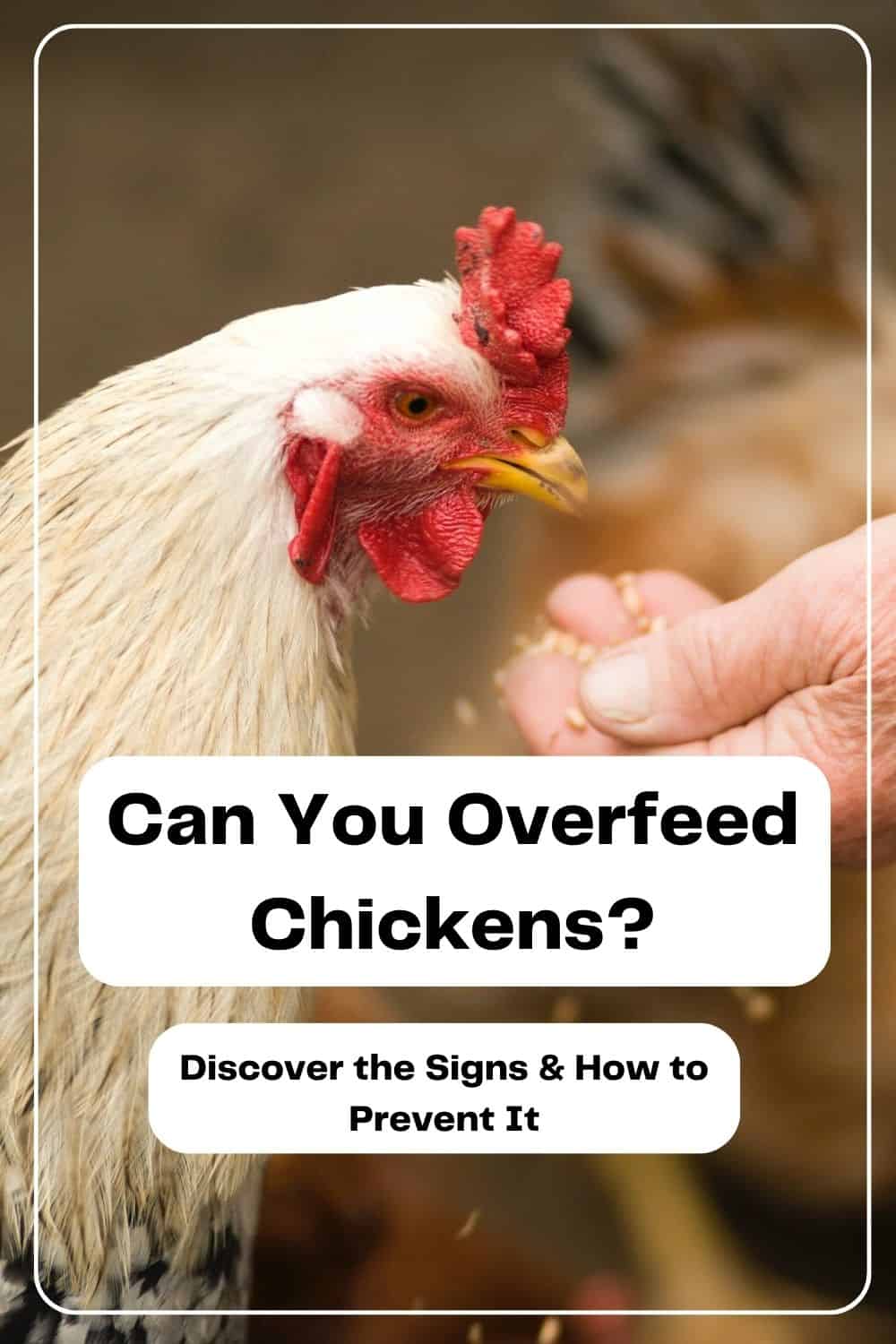

Joseph Hudson has been raising chickens for over 15 years. In 2018, he completed the Agriculture & Natural Resources program at Mt. San Antonio College. He currently raises over 1400 chickens on his 7.5-hectare farm. He keeps sharing his experience on raising healthy and happy chickens on Chicken Scratch The Foundry.
